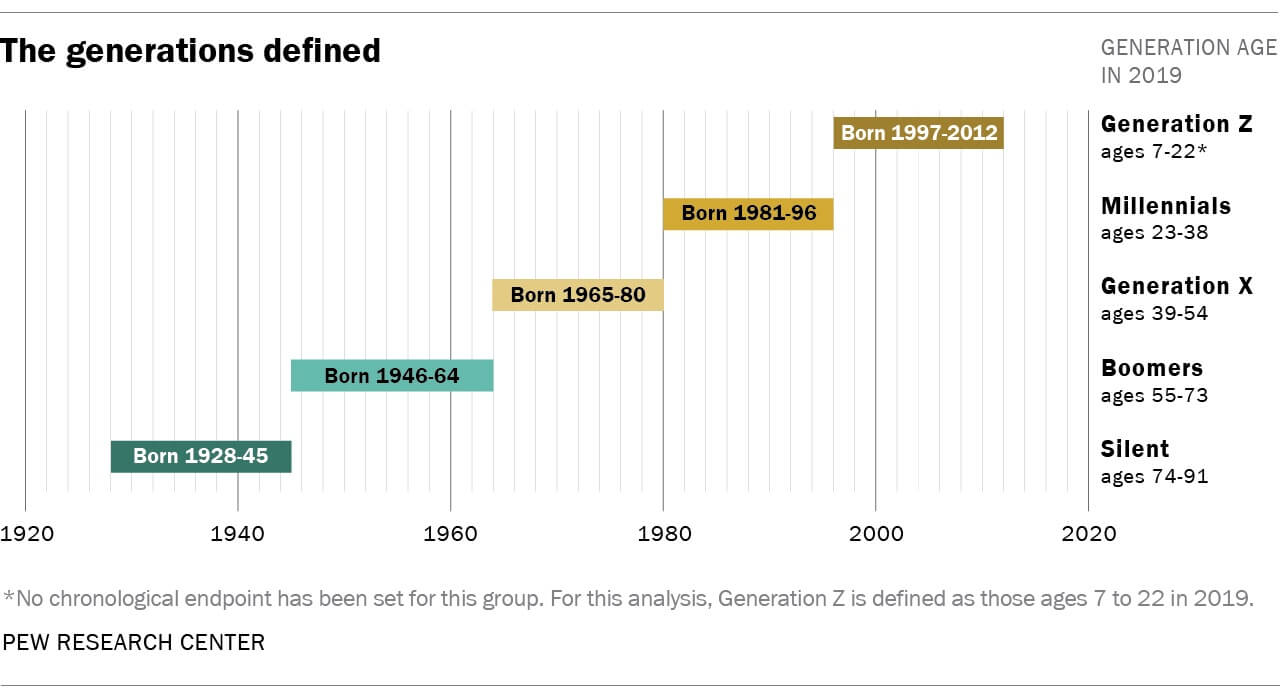Gen Z’s & Middle Management: A Leadership Crisis in the Making?
Younger employees, particularly from Generation Z, are rejecting the traditional career trajectories. Gen Z professionals are increasingly avoiding middle management roles.
Anjli Raval, Management Editor at Financial Times, reports on boards and corporate governance and recently highlighted the latest recruitment firm Robert Walter survey, which tackles this reality.

Most analyses, such as those by the Pew Research Centre, believe Generation Z includes those born from 1996 onwards.
1996 is a meaningful cutoff between Millennials and Gen Z for a number of reasons, including key political, economic and social factors that define the Millennial generation’s formative years.
Michael Dimock
President at the Pew Research Centre
Generation Z, also known as Zoomers, tends to live at a slower pace than previous generations and is more focused on school and job prospects.
They also tend to drink and smoke less (although they consume slightly more psychoactive drugs) and are better at delaying gratification than teens from the 1960s, with girls experiencing puberty at early ages. Also, generally speaking, studies show younger people are more aware of mental health and well-being, with a shift towards a postmaterialistic attitude when defining success in developed Western societies.
This priority change impacts Gen Z’s engagement with the labour market, particularly in leadership positions.
Members of Generation Z perceive the process of pursuing leadership or management positions as a tedious workload without the corresponding social prestige.
For decades, climbing the corporate ladder meant stepping into middle management, overseeing teams, coordinating projects, and eventually working toward executive leadership.
However, nearly 42% of Gen Z professionals say they would rather not become middle managers, and 70% of Robert Walter survey respondents dismissed managerial jobs as “high stress, low reward.”
There is a growing disinterest in middle management. Rather than aspiring to traditional leadership roles, young professionals are prioritising personal growth, flexibility, and job satisfaction over hierarchical advancement.
Extra holidays or sabbatical opportunities, company car, flexible or remote working options, performance-based bonus and insurance package are the five most popular benefits among Gen Z professionals.
Middle Management: Inspiration Wanted
While middle management and leadership were once seen as stepping stones to higher leadership, they are now viewed as tedious, bureaucratic positions that involve constant problem-solving, personnel issues, and corporate red tape.
As CEC European Managers president Maxime Legrand stated a couple of weeks ago in a comprehensive interview, “It’s about re-enchanting the role of managers” because inspiration is needed, and leaders are welcomed in the context of a European shortage of skills.
However, younger generations may not want to take the risks of leading, and Gen Z does not equate career success with rising through corporate ranks.
Instead, they seek expertise in their fields, entrepreneurial opportunities, and project-based work that aligns with their interests and values.
When asked about the reasoning behind that, Gen Z professionals often explain they witnessed their parents face burnout, layoffs, and economic struggles despite years of loyalty to their employers.
This shift means companies relying on the traditional promotion pipeline struggle to attract young talent into leadership roles.

Leaders: A Path Forward
To combat this trend, businesses need to rethink what leadership looks like. Inclusion, equity, and equality are tools to shape a new leadership narrative necessary for companies’ productivity and competitiveness.
Rather than forcing young employees into outdated managerial roles, employers should explore alternative structures, such as mentorship-based leadership, project-based management, and collaborative team dynamics.
Also, as many of today’s managers are “accidental leaders,” they can sometimes learn new leadership skills to inspire and engage their teams and younger members more effectively.
By investing in proper managerial training, companies can create better role models who, in turn, encourage younger employees to take on leadership positions.
An example highlighted by Anders Koch, our Danish representative from Lederne, at the latest CEC European Managers General Assembly is that of Corporate Climate Leadership. Koch stated,
“We need to stop speaking about the youth and start speaking with the youth.”
Companies that listen to their concerns and offer meaningful, flexible, and fulfilling career paths will thrive in an evolving professional landscape.





